Saturday 29 March 2008
Friday 28 March 2008
An Overview of Future Events
 AD 2000 to 2039 -- The Forty Years, a period of 40 years during which the Church and the world will undergo very great sufferings and very great changes.
AD 2000 to 2039 -- The Forty Years, a period of 40 years during which the Church and the world will undergo very great sufferings and very great changes.- April 10th, 2009 -- God will give a special blessing to the Church and the world: The Day of Repentance (when everyone on earth will be given the opportunity by God to repent of their sins), which is the same as the Warning of Garabandal, which is the same as the First Secret of Medjugorje.
- April 12th, 2009 -- God will give a special blessing to the Church and the world: The Day of Consolation (when those who accepted the gift of repentance from sin will be given consolation from God), which is the same as the Second Secret of Medjugorje.
- In the year 2009 -- The Jewish people will decide to build the Third Temple of Jerusalem. Also in 2009, Pope Benedict XVI suggests building three places of worship in Jerusalem, a Temple, a Church, and a Mosque -- so that these three religions can all worship in peace in the city of peace. He does not understand. This will not happen in the short term; instead there will be war.
- In 2009 -- War among Arab/Muslim nations of the Middle East and northern Africa will unite these nations under the leadership of Iraq and Iran. Iraq will invade and occupy Syria and other Arab nations.
- AD 2009 or 2010 -- Pope Benedict XVI dies. The election of the Pope whom St. Malachy calls Peter the Roman. He is a holy Pope who does the Will of God. I think that this Pope will be Cardinal Arinze, who will take the name Pope Pius XIII. The great apostasy begins sometime during the reign of this Pope, during which most Catholics leave the Church. Some will try to set up a competing 'catholic' Church.
- May 13th, 2010 -- God will give a special blessing to the Church and the world: The Day of Healing (when many people all over the world will be miraculously healed by God), which is the same as the Miracle of Garabandal, which is the same as the Third Secret of Medjugorje.
- 2009/2010 -- The events described in the book of Revelation begin. These events are often called "The Apocalypse" -- however, this is not the end of the world. These events take many, many years to unfold.
- 2010/2011 -- A long and bloody war begins. It is World War 3. After the small war among Arab nations, the Arab nations will join forces. They will threaten and attack the United States. In the year 2010, they will explode a nuclear bomb in New York City.
You will make them like an oven of fire, in the time of your presence.
The Lord will stir them up with his wrath, and fire will devour them.
Next they will threaten and attack Europe. They will attack France and Italy and other countries. The Arab nations will be unstoppable. They will eventually conquer all of Europe, parts of eastern Europe and Scandinavia, and the northern part of Africa. This will be a war against nations and also a war against the Christian faith. They will burn churches and prohibit public Christian worship in the occupied countries. This war will last for many years, from 2010 to 2018/2019. [This war is the First Horseman and the First Seal of the book of Revelation.] - the 2010's -- Civil violence and disorder, caused by the war and by the confusion and fear of the people of the world during the tribulation. This violence is world wide, resulting in police and court systems being overwhelmed. People will need to exercise their right to self-defense. [This violence is the Second Horseman and the Second Seal of the book of Revelation.]
- In 2012 -- As the Arabs attack Italy, the Pope will be forced to flee Vatican City. He will be captured by the Arab soldiers and taken to Syria. He will be put on trial and an unjust sentence will be handed against him. He will be blinded (his eyes will be put out) and taken to Iraq to be emprisoned there. This Pope will die a martyr, in a prison in Iraq. This Pope will be the one St. Malachi calls Peter the Roman; I think that he will be Cardinal Arinze, and that he will take the name Pope Pius XIII.
- In 2012 -- The Arabs capture Rome and burn the churches there. They partially destroy Vatican City. They lay waste to the city; it is half in ruins.
- In 2012 or 2013 -- The Church must elect a new Pope, but Rome and Vatican City are under the control of the extremists who lead the Arab/Muslim forces. The rules for electing a Pope require that he be elected in Vatican City. Two groups both claiming to represent the Church, and both including some Cardinals and some Bishops, will each elect a pope: one true Pope and one false pope.
- In 2012 or 2013 -- The Allied forces retake Rome and drive out the Arab forces. The victory will be short-lived. Both the true Pope and the false pope go to Rome to try to bolster each one's claim to be the Roman Pontiff.
- In July of 2013 -- The Arab forces will use a nuclear missile to destroy Rome and Vatican City in July of 2013, killing the recently-elected Pope, along with an antipope who has widespread support.
- mid 2013 to mid 2020 -- The Great Famine of the 21st Century begins. It lasts seven years. It will increase in severity and extent from mid 2013 to 2015. The worst year will be 2015. From 2016 to 2020, as the Protestant Churches repent and consider uniting with the Catholic Church, the famine decreases in severity. The famine will be most severe in Europe and in the occupied territories, and still relatively severe in wealthy nations not under occupation, and much less severe but still substantial in poorer nations. Even the United States will be relatively severely affected. Then, in the early 2020's, when all the Christian Churches are united and the Catholic Church is restructured to bring us all together, then there will be feasting and rejoicing. (But in the occupied territories there will still be oppression.) [This famine is the Third Horseman and the Third Seal of the book of Revelation.]
- the 2010's -- Death from a variety of causes, most related to the three previous horsemen, is [the Fourth Horseman and the Fourth Seal of the book of Revelation.]
- 2017 to 2019 -- World War III winds down. The war ends gradually, and as it does the civil violence around the world also decreases. Very many persons died as a result of the war and the civil violence and the famine.
- 2020 to 2023 - The Unification of all Christian Churches in one Catholic Church. The Great Famine will end upon the beginning of the restructuring of the Catholic Church for Unification, in mid 2020. Nothing whatsoever will cause the Great Famine to end until Christians repent and convert and unite in one holy Catholic Church. One sign, which will precede this unification, will be widespread conversions among Catholics to believe all that the Catholic Church teaches. The Church will then be restructured to have seven divisions within unity: 5 parts for the formerly Protestant Churches, 1 part for the Latin Rite, and 1 part for the Eastern Churches.
- 2022 -- A Pope is elected who is not a Roman Catholic; he is one of the converts from Protestantism, from one of the new branches of the Catholic Church (not the Latin/Roman Rite). This pleases those Protestants who have converted to Catholicism, but it does not sit well with conservative Roman Catholics.
- the 2020 to 2030's -- The InterWar Period The Arab/Muslim extremists have won the war and have conquered Europe, including the UK, parts of eastern Europe, parts of Scandinavia, and the northern part of Africa, as well as maintaining control over the Arab/Muslim nations of the Middle East. Christians and Jews in the occupied territories are oppressed and persecuted. Churches and synagogues are burned and descrated. Things formerly called rights and freedoms will be resticted or not permitted at all.
- 2028 to 2032 -- A great Ecumenical Council is held, which decides that Unification was the will of God, and which deals with various problems caused by unification. Conservatives will be pleased with the dogmatic pronoucements of this Council. Liberals and former Protestants will be pleased with the affirmation that Unification was the right thing to do and will be continued.
- the 2030's -- The Great Martyrdom. There will be a severe persecution of Christians, especially in countries occupied by the Arab forces. Christianity will be illegal. Priests will be hunted down, tortured, and killed. Many, many Christians will be put to death. As the Holocaust was to the Jewish people, so this persecution will be to Christians. [This holocaust is the Fifth Seal of the book of Revelation.]
- from about 2033/2034 to 2037 -- The Great Monarch will lead the United States and other free nations in a great and terrible war (World War 4) to free Europe from oppression and to end the killing of Christians in the occupied lands. His army will be unstoppable. This war will be shorter, but more horrible, than the war by which the Arab forces conquered Europe. The Arab armies will be driven out of Europe and conquered even in their own lands. This will be an all-out nuclear war, where the United States makes a first strike against the Arab forces. World War 4 is the Sixth Seal of the book of Revelation.]
- 2038 -- At the end of the Monarch's War, the Seal of the Living God is given out to some of the faithful, then a severe set of sufferings begin, which are described in the book of Revelation as the first six Trumpets of the Seventh Seal. The Seal is a mark on the forehead (for most persons a cross), and also inner graces and gifts, and providential protection from most of the subsequent sufferings.
- 2038 -- The first trumpet - many pieces of a comet (probably Comet Tempel I ), which has broken apart, fall to earth. There is fire and destruction over about a third of the earth (Rev 8:7); this verse from Revelation talks about something like hail (which is frozen), but which burns with fire. A comet is frozen, and pieces of a comet plummeting through the atmosphere would burn with fire.
- 2038 -- The second trumpet - one large piece of that same comet remains and falls to earth, landing in the ocean and causing widespread destruction (Rev 8:8-9). We see here how verses 8-9 are related to the previous verse.
- 2038/2039 -- The third trumpet - nuclear fall-out from World War 4 poisons many sources of water on the earth.
- 2038/2039 -- The fourth trumpet - a nuclear winter caused by World War 4 and by the many fires from the broken comet that fell, reduces the amount of light that can reach the earth.
- 2038/2039 -- The fifth trumpet - something like locusts (either man-made or something entirely supernatural) tormets those who do not have the Seal of God for five months.
- March 29, 30, 31 of 2040 -- The sixth trumpet is the Three Days of Darkness. Approximately one third of the entire earth's population will be killed. Anyone who goes outside or opens a door or window to the outside during those three days will be killed. The length of time will be three full days minus one night.
- AD 2040 and following -- A time of peace and prosperity. The Church will be one and will have great success in preaching the Gospel. Just laws will be made and the great monarch shall rule unopposed. The Angelic Shepherd will rule the Church for many years; He is Pope Raphael (Zlatko Sudac), who guides the Church as it is healed by God from all the sufferings of the previous generation. He was elected prior to World War IV, and he reigns for a long time. He works very many true miracles and is a very holy Saint among Saints.
- from the latter part of 21st century to through the 23rd century -- People will gradually fall into more and more sinfulness. Discensions and conflicts will increase around the world. Kingdoms will rise and fall.
- the 24th century -- the world will become divided into ten regions only, each ruled by one ruler. This is the time of the ten kings. These kingdoms will be very sinful, harsh to all who oppose them, and unjust in their laws and customs. It is a time of false peace, obtained through harshness.
- AD 2430 to 2437 -- The time of the Antichrist's reign and the time of great suffering for the Church on earth.
- AD 2437 -- Jesus Christ Returns (This event is called the Second Coming). The Virgin Mary accompanies Him.
- AD 2438 to 2439 -- The last of the worldwide afflictions described by the Book of Revelation. The seventh trumpet, which is comprised of the seven bowls of God's wrath. The wicked are punished by God with great severity.
- Soon afterwards ... The time of great holiness and peace over all the earth begins, which will last well over 1,000 years. This period of more than one thousand years is called the Millennium. At the beginning of the Millennium, Christ again Ascends to Heaven (Second Ascension) and again sends the Holy Spirit upon the Church (Second Pentecost). Mary is assumed into Heaven.
- After the Millennium ... Another conflict of good against evil, then a period of rebuilding and renewal.
- Sometime after that ... the General Resurrection. At this time, Jesus Christ Returns again to judge the living and the dead.
- And after that ... God takes away Heaven and Earth and makes a new Heaven and a new Earth.
- And then ... Who knows?.............
Friday 21 March 2008
Islands of Calm
 MICHAEL BENISTY knows what it is to be love struck. “When I have a crush on something or someone, I make a fast decision,” said Mr. Benisty, a stockbroker in New York.
MICHAEL BENISTY knows what it is to be love struck. “When I have a crush on something or someone, I make a fast decision,” said Mr. Benisty, a stockbroker in New York. Seated on his patio overlooking Biscayne Bay, he gestured expansively, showing off his current lust object, his 1950s fan-shaped house.
“I needed a pied-à-terre in Miami,” said Mr. Benisty, a partner in a South Beach restaurant. “But I intended to watch the market at first.”
Temptation got the better of him, and in February, Mr. Benisty, who is 39, snapped up the first house he saw, paying $3,150,000 for a 3,500-square-foot, four-bedroom weekend retreat on Di Lido, one of the Venetian Islands. The house retains many of its prized original features, including travertine floors, a generous patio and coral-stone exterior wall.
To say nothing of the view. Gazing beatifically across his private stretch of palm-fringed bay, Mr. Benisty said, “The thing that I like is that here, there is only you and God.”
He is one in a small number of second-home buyers to discover the serenity of the Venetians. For years, as I can attest, having moved to the Venetians part time in 2003, the islands have stood in contrast to buzzing South Beach and its successive revivals.
This chain of 11 artificial islands, six of which are inhabited, stretches across Biscayne Bay between downtown Miami and Miami Beach. Some are part of Miami, others part of Miami Beach. They are linked by the Venetian Causeway, a scenic road with 12 bridges erected by developers in the mid-1920s to lure buyers.
“People were really into theming,” said Arva Moore Parks, a historian and the author of “Miami: The Magic City” (Centennial Press, 1991). Venice was an obvious point of reference, she said, one with “a very romantic, glorious cachet.”
Today the causeway, with its old-fashioned lampposts, its skaters and cyclists, offers views of some of the most romantically secluded properties in the area.
The islands form a slice of tropical suburbia that extends eastward almost to Lincoln Road in South Beach, with its proliferating shops and restaurants. They stretch west to the mainland and the Adrienne Arsht Center for the Performing Arts, the $461 million downtown complex that opened in 2006.
Their centralized location has helped the islands prosper. A pocket of stability in an otherwise volatile real estate market, they are positioned comfortably between extremes: on the one hand, downtown Miami, with falling prices and climbing inventories that have placed it at the leading edge of the nation’s real estate crisis, and on the other, the strenuously hip environs of South Beach, where prices continue to climb, albeit slowly, keeping waterfront properties out of the reach of most buyers.
“A lot of the heartbeat of Miami Beach is living on the Venetian Causeway,” said Todd Glaser, a developer. Affluent and often young, buyers are enticed, he said, by the prospect of finding that rarity, a relatively affordable home with a water view. Given those attractions, it was only a matter of time before the islands — some with Old World names like San Marco, San Marino, Di Lido and Rivo Alto — would attract attention.
“The Venetian Islands are growing just the way they are supposed to, quietly and with distinction,” said Gary Hennes, a local developer, whose newest property, Lincoln Square, is a 35-unit condominium building in South Beach just east of Belle Isle, an apartment enclave that is the easternmost of the Venetians. “There aren’t McMansions on every single piece of land. And there are affordable properties on many of the islands.”
Pointedly, he added, “The Venetians have not had the hype of other areas in Miami Beach, and they don’t need it.”
Of course, hype in Miami has never been in short supply, especially among real estate insiders eager to exploit an area that, until now, has enjoyed the status of a best-kept secret.
“The Venetians are hot, I think the hottest area of Miami,” said Seth Semilof, a former real estate broker and the publisher of Haute Living magazine. “There’s still an upside here; you can get luxury properties at under $10 million. That’s true nowhere else on Miami Beach.”
Friday 14 March 2008
Ways to Live On Almost Nothing - 2
Part 2: Items 6-10
This is the second installment of the 20 ways to live on little-to-nothing. Obviously, not all of these alternatives will appeal to everyone. But perhaps some will appeal to some.
6. Personal Housing for the Gypsy Tread-Lightly

If your lifestyle doesn’t require thousands of square footage consider the advantages of an RV or travel trailer. No, not one of those $200,000 new fancy jobs, but one just “big enough” and in desperate need of some handy TLC.
Getting “free” will take more ingenuity that most people have to spend, but getting “cheap” is entirely possible. Unless you’re a serious mechanic, travel trailers are a much better option than RVs or old city buses that probably need totally rebuilt engines. A trailer can be moved as regularly as necessary (many state and national forest sites have 2-week limits) so long as you’ve something to haul them with.
7. Take Advantage of Gypsy Food Sources
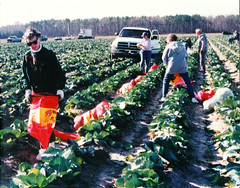
If you move around quite a bit, you’ll have more opportunities than most people to take advantage of wild foods along the back roads and byways of your travels. Did you know that your basic cattails are a regular supermarket of goodness? Or that acorn flour makes great bread or breakfast mush that’s extremely healthy? Did you know that violets, tiger lilies and nasturtium flowers make a very tasty salad?
There are apple and pear trees that have escaped old homesteads, often right beside the road. In some producing regions you can glean fruit from orchards after main harvest. Grapefruit, oranges, peaches, apples, sometimes cherries and grapes as well. Truck and grain crops can sometimes be gleaned as well, allowing you to pick vegetables that weren’t ripe for the main harvest and will otherwise be left to rot.
8. A Place Of Your Own
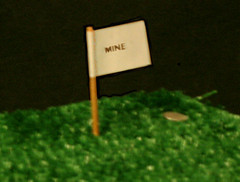
Free land? In the 21st century? Believe it or not, there are towns in the Midwest offering land for free to people willing to build new homes within 2 years. Of course, this means you’ve got to invest in building a new house, and that’s certainly not zero cost! Do not be fooled - the US Government [BLM] stopped offering free land in 1976. You can’t just go claim some.
Yet an industrious and/or well-connected professional caretaker could end up with space enough to put a home in exchange for simply living there to take care of things! That way you don’t have to “stuff-less” or rootless, your home is your own. This takes some diplomatic skills and might take years to work yourself into, but there are people who got their property (including yard and garden!) for free on a corner of someone else’s property.
9. No-Cost Housing for the Handy
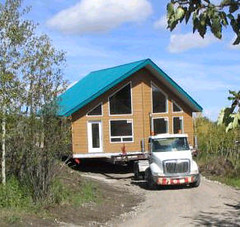
People might be surprised at what’s available out there for those willing to do the work or bargain with others for the services. Older houses on acreage that’s being subdivided for development are often given away rather than simply torn down, but you’ll have to move it to where you want it. Those who can build and re-build can often tear them down and keep everything for rebuilding on their own property. Which is often much cheaper than moving a farmhouse…
Careful inspection to decide the best relocation option is required. If that house will fall apart two blocks down the road, you’ll be better off just taking it down and hauling it off in pieces. Building materials, bathroom fixtures, plumbing, wiring and electrical box equipment, kitchen cabinets, cabinets and even sinks are often available for free where a developer is tearing down older dwellings to make way for new too.
10. Powering Your Living Space

Cost of electricity is always going to be with us, it seems. Still, there are alternatives out there that a handy person could make good use of. There are ways to obtain free solar panels that would make a real dent in a traveling home or even a stationary one. If you’ve some land of your own or you end up in a community of like-minded people, think about developing a diversified alternative system.
Friday 7 March 2008
20 Ways to Live On Almost Nothing
Part 1: Items 1 - 5

As Janice Joplin sang to us all those many years ago, freedom’s just another word for nothing left to lose. That doesn’t have to be a sentence to despair. It can also be a defiant gesture to the powers that be, and the license we need to live joyfully, peaceably and responsibly on our planetary home. After that kind of commitment, any money that does come in can pad our own safety nets and perhaps even inspire others to tread lightly on the earth.
With millions of Americans losing their jobs and their homes in this recession - and hardly any available cheap rentals or backup jobs to take up the slack - there will be a lot of people out there trying hard to survive.
The adage that it takes money to make money doesn’t mean much to people who have none to spare, but it also takes (some) money to live on little-to-no money if you want to do it well. Mostly it requires nothing more than a different way of approaching life, and a willingness to choose the less-traveled road. Or, in some cases, choosing the road…
1. Decide What You Want From Life
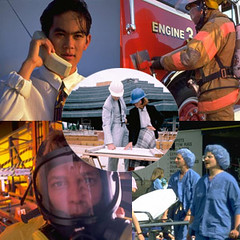
Doctor, lawyer, Indian chief… scientist, artist, writer, woodworker, mechanic. Most choices of career outside the big business and financial sectors can be pursued without great expense once you’re out of school. Sit down and make the list. Then once you’ve got it, arrange it into priorities top to bottom. Any lower items that conflict with the top items can be crossed off. Then decide what your time investments are to be. With that well-honed list you can then begin a Plan - 5 years, 10 years, 15 years, 20. Things don’t usually go according to plan, but if you’ve got a plan you’re already several steps ahead of life’s fast balls.
If what you want from life is love and happiness, seconded by rewarding work, take heart! The best things in life really can be free. On this decision, bear in mind that no matter who you are, the greater your range of skills, the more you can do for yourself, and the more satisfaction you can gain. Diversify, diversify, diversify!
2. Put Those Goals To Work in Your Life
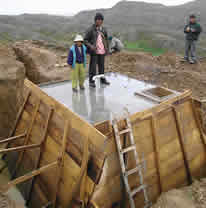
A young person just starting out, a thirty-something adventurer, or an older couple whose kids are on their own can trade their skills and talents directly for basic living expenses - shelter and food the primaries among those necessities. While at the same time “seeing the world” and doing some good.
There are many missions, NGO projects and other affiliated concerns who are always in need of warm bodies to do the work they’re dedicated to providing. All over the world, and all over the US of A. You’ll never get rich vaccinating children or passing out food or building schools, digging wells, teaching, installing energy systems, etc. in the Third World. Heck, many such jobs pay nothing at all. But you’ll usually get a place to sleep, food to eat and experiences enough to fill storytelling voids forever!
3. No-Cost Housing for the Tread-Lightly

If you’re single (or double with no children), handy and responsible, pack lightly for your Earth-journey, and don’t feel a need for deep roots, consider becoming a professional caretaker. Breaking into this lifestyle takes some work (earning trust and reputation), but once you’ve got a few favorable references you might be surprised by the possibilities.
Many real estate management firms are well paid to care for rich people’s “extra” homes - places they may spend a week or less a year occupying, some who are overseas and may not get home for years! Having someone who leaves small footprints but who can keep everything in good repair while protecting the place against the damages inevitable in abandonment is a good deal for them. Some will even pay you to live there!
4. Travel For Free
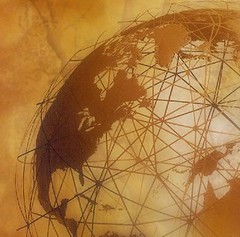
If you aren’t a machinist or have a skill you can trade a merchant shipping company for fare, there are other ways to travel for free. If you’ve an excellent driving record and some references you can deliver cars almost anywhere in the country, while someone else pays for the gas and motels along the way! There are air couriers who will pay your round trip to Europe or Asia just for carrying and delivering a parcel or packet of papers - but in the post-9/11 world you’d better be bondable. If you are fluent in another language, you can often do a little local translation work (make some signs in English or the other way around) for a hotel or menu for a restaurant in exchange for food and lodging once you’re there.
If you do have nautical skills, consider moving yachts around for absentee owners. It’s a nice way to travel, and if you’re reliable and prompt, you’ll get to see quite a bit of the country and world!
5. Consider Becoming an “Expatriate”
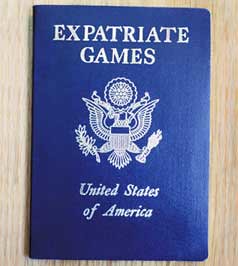
There are many countries that welcome however few American dollars you can bring in and/or skills you can offer, where those same dollars will go a whole lot farther than they do here in the States. Many of them also have universal health care, which is something to think about if you’re really trying to live on practically nothing.
Do your homework well before you jump on the bandwagon, there are always trade-offs. If you’ve a grubstake saved (or inherited), you’ll want to make the best choices. And don’t overlook the visa requirements, which may have you coming back to the US every 90 days or so.
Stay tuned for part 2, where we’ll look at more alternative ways of making your life work without much money.
Tuesday 4 March 2008
Play Hard to Get With Your Money
 This credit crisis we're in must have been on the minds of neuroscientists who recently completed a study on why it's so tough to not be lured by the spell of instant gratification. Researchers found that we don't seem to be cut out for the waiting game when it comes to cash — the possibility of receiving a slightly bigger reward tomorrow doesn't arouse the brain as much as a smaller gain today.
This credit crisis we're in must have been on the minds of neuroscientists who recently completed a study on why it's so tough to not be lured by the spell of instant gratification. Researchers found that we don't seem to be cut out for the waiting game when it comes to cash — the possibility of receiving a slightly bigger reward tomorrow doesn't arouse the brain as much as a smaller gain today. When offered a payout today of $20, the studies discovered that the average person's brain will justify waiting three weeks for a higher reward only if that amount grew at an annualized rate of about 4,800 percent. They attribute this rationale to our hunter-gatherer days when food wasn't always available, and the size of a future feast would have to justify choosing it over eating now.
Playing hard to get with your money is the best way to protect yourself against your urges prompted by the desire for instant gratification. Set up automatic transfers from your checking account to your savings account so you're not tempted to spend, and set up automatic deductions from your paycheck to deposit money in to your retirement savings account.
Amazing, only Japanese can imagine & execute!!!!! !!!!!!!!! !
Japan Mobile Stadium
![Japan Mobile Stadium [www.ritemail.blogspot.com]](https://blogger.googleusercontent.com/img/b/R29vZ2xl/AVvXsEjqd68cdAqMoQca1tLS7j56PLrTYXYU4yOy6_wGg9YHILpMu108TdA9DZfxcjPNNaH_EA_vjP57GXlnhF3Uo7b5-W3ZimFgVxVlv4cPtifJBBYbRalndcoEGB4R_6rc8n9U3AEIDS720gCr/s400/Japan+stadium7.jpg)
![Japan Mobile Stadium [www.ritemail.blogspot.com]](https://blogger.googleusercontent.com/img/b/R29vZ2xl/AVvXsEiSCIOEYFl32ZMnJpd7QcQm0l28ahCvWY05ix08nJIMqEi2doraOTXEoYZqR3jcY4g0XsPSaB8B_zw2u6_CxbBHxzIQFsy5cA7Y3sAY1i2pMA9dge1LJw3ApinRvjO2lQhrs9XaumLBNiLf/s400/Japan+stadium6.gif)



![Japan Mobile Stadium [www.ritemail.blogspot.com]](https://blogger.googleusercontent.com/img/b/R29vZ2xl/AVvXsEj8_SHyU3Sh34R0v0SflbTb8jNjPKA6JgviGBOLbTD6qiPMKHYu83nmwLodTQLeLuN6yZI4I1Tmc0Kz87XWLhTUGSTETuTmIDAwpPTSVgvgXepXghHILVP8y3P7MZjeuuNBYFaA7iq8lof7/s400/Japan+stadium2a.jpg)


Saturday 1 March 2008
Money Tip: What If Your Bank Is Forced to Fold?
 While last year there were just a few bank failures, the chairman of the Federal Deposit Insurance Corp (FDIC) is predicting that there will be more to come — regulators are estimating 100-200 bank failures over the next year or two. FDIC has insured deposits in banks since its creation during the Great Depression, and the FDIC maintains that not one penny of insured funds has been lost due to bank failure since 1934.
While last year there were just a few bank failures, the chairman of the Federal Deposit Insurance Corp (FDIC) is predicting that there will be more to come — regulators are estimating 100-200 bank failures over the next year or two. FDIC has insured deposits in banks since its creation during the Great Depression, and the FDIC maintains that not one penny of insured funds has been lost due to bank failure since 1934. Since the FDIC would protect your money if your bank were to fold, the first thing you should look for in a bank is that its deposits are FDIC insured. You can check out the FDIC's website to see which banks carry its guarantee. Individual accounts are insured up to $100,000, joint accounts can be insured up to $200,000, and IRAs can be insured up to $250,000. According to the FDIC, "there is little or no interruption to the consumer" if your bank goes under.











